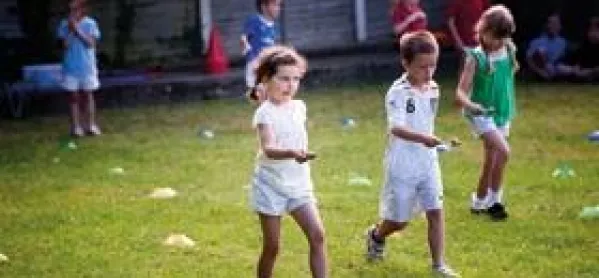Olympic legacy may become a ‘gimmick’

This time last year, the eyes of the world were fixed on the UK, as the minutes and seconds were counted down to the opening ceremony of the London Olympic Games.
Just 12 months on, however, and the promised legacy of the Games is hanging in the balance. Politicians, principals and sports coaches are concerned that the country is allowing the opportunity to capitalise on the Olympics to slip from its grasp.
Earlier this week, MPs on the Commons Education Select Committee issued a hard-hitting report warning that the UK government’s two-year pound;150 million school sport programme risks becoming little more than a “gimmick”, which will fail to sustain the interest generated by the Games.
The programme, announced in March, is to concentrate on primary schools, providing on average an additional pound;9,250 a year for schools to invest in specialist physical education (PE) teachers and sports coaches, as well as sports clubs. It follows scathing criticism of a decision by England’s education secretary Michael Gove to scrap school sport partnerships, which encouraged schools to collaborate on delivering high-quality provision.
Hand-wringing over Olympic legacy has frequently occupied governments of host countries in recent times, as they struggle to legitimise spending billions on four weeks of sport. This is why the London 2012 team placed inspiring future generations to take up sport at the centre of its successful Olympic bid.
But already the UK government’s approach to boosting participation among the young is under fire, with Graham Stuart, chair of the select committee, stating that it must do more to ensure that the momentum from London 2012 is not lost as a result of “short-term plans and funding”.
“We are concerned that the government’s primary sport premium - while correctly focused - is only being given to schools for two years,” Mr Stuart said. “This is simply not long enough for schools to build a sustained provision. Many headteachers will be struggling to decide how to spend the money most effectively and, if the funding is not extended, there is a risk the primary sport premium will become little more than a gimmick.”
His concerns were echoed by Russell Hobby, general secretary of the NAHT headteachers’ union, who said that creating a real legacy of fitness and well-being required long-term investment.
Even Lord Coe, the man largely responsible for bringing the Olympics to London, has voiced his fears over the direction of the legacy and called for a 10-year plan to help combat a mounting child-obesity problem.
Speaking to newspaper The Guardian last week, Lord Coe said he was giving up his role as Olympic legacy ambassador to ensure that his responsibilities find permanent homes in government departments. “My challenge to politicians of all political persuasions is that this is a 20-year mission and a 10-year journey. We’re only 45 weeks into it,” he said.
Although Lord Coe is supportive of the government’s policy on school sport, many experts fear that the sport premium could be wasted on specialist coaches who will leave once the money dries up, rather than being used by schools to train permanent staff to teach high-quality PE.
The Youth Sport Trust has repeatedly raised such concerns and told TES that although pockets of excellent PE and sport provision exist in schools, it is not spread evenly across the country.
“There are some really exciting ways in which schools have used the Olympic and Paralympic Games in the year since, but it is a patchwork quilt at the moment,” said Ali Oliver, managing director of the trust. “And while we feel there is still a window (for schools to capitalise on the Games) it is narrowing quickly. The sport premium is for two years, but without long-term strategy it is difficult to tell what will happen post-2015.”
In response, the Department for Education said that it wants every child to develop a lifelong love of sport from a very early age, adding that its vision for school sport is long-term.
“On top of the pound;300 million that will go directly to schools to spend on PE over the next two years, we have asked (England’s schools inspectorate) Ofsted to hold schools to account for how well they spend the money,” a spokeswoman said. “And we have invested pound;750,000 in an initial teacher training pilot to create a cadre of specialist PE teachers, with the first 120 ready to join schools from September 2013.”
Last year’s Games were described as one of the most successful in a generation. Whether the UK can make an equal success of its legacy programme remains unclear.
Photo credit: Alamy
Keep reading for just £1 per month
You've reached your limit of free articles this month. Subscribe for £1 per month for three months and get:
- Unlimited access to all Tes magazine content
- Exclusive subscriber-only stories
- Award-winning email newsletters



